The 70th anniversary of the FIBA Basketball World Cup
MIES (Switzerland) - Today, October 22, marks the 70th anniversary of the FIBA Basketball World Cup. On opening day in Buenos Aires, Peru beat Yugoslavia and Egypt overcame Ecuador.
MIES (Switzerland) - The FIBA Basketball World Cup has been a stage for incredible drama over the years. It has been an arena for unforgettable games and riveting performances of national teams. There has been an abundance of passion.
One thing has never changed. From the very beginning, players have taken enormous pride in representing their countries.
Today marks the 70th anniversary of the start of the first FIBA Basketball World Cup that was played in Buenos Aires, Argentina. On October 22, 1950, Peru beat Yugoslavia, 33-27, and Egypt overcame Ecuador, 43-37.
It was the beginning of an event that would grow into a spectacle. Seventeen editions have followed, including the most recent in China last year. If only 10 teams took part in the inaugural World Cup, a whopping 32 competed in the last edition.
Here's a look back at FIBA's flagship event and 10 landmark moments that shaped the event to what it is today.
1. It all started in Buenos Aires
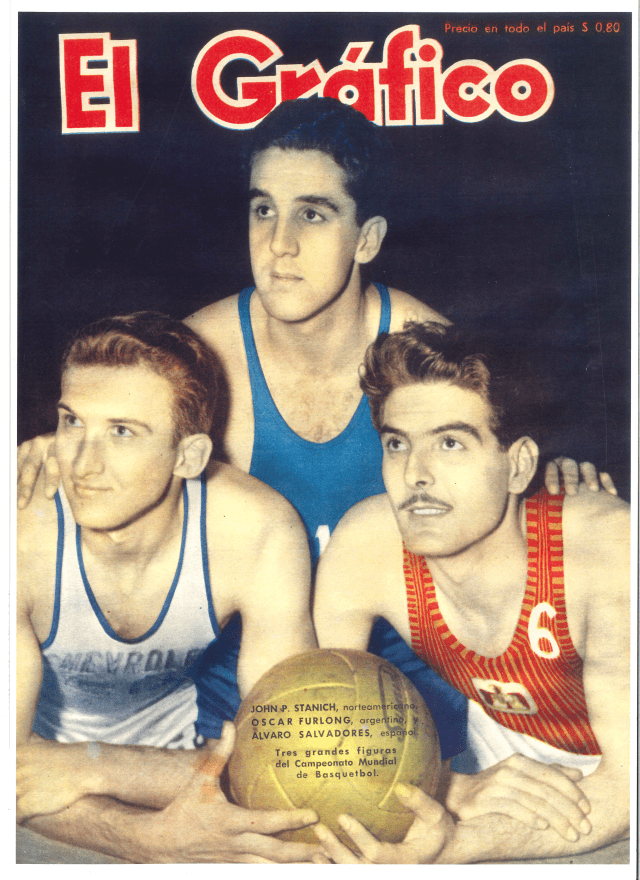
The very first FIBA Basketball World Cup, which was then called the World Championship, was staged at the multi-purpose Luna Park arena in Buenos Aires and three famous players of the era were on hand in the USA's John Stanich, Spain's Alvaro Salvadores and Argentina's Oscar Furlong. While Salvadores led the competition in scoring 13.8 points per game, Spain finished dead last. Furlong was named the MVP of the event after Argentina defeated the United States, 64-50, to lift the title.
2. Brazil win first of two titles in 1959, outdoors in Santiago
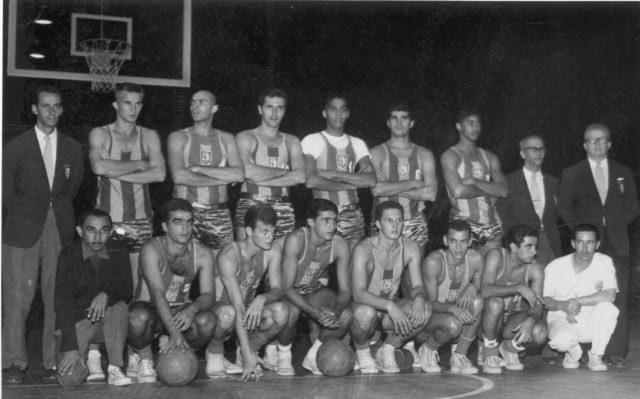
At the third edition in Santiago, in 1959, with the competition played outdoors for the first time at the Estadio Nacional de Chile, Brazil rebounded from the disappointment of a runners-up finish on home soil to the United States in 1954 at the second World Cup, in Rio de Janeiro.
The format in 1959 was different from today's. The top two teams from each of the five Preliminary Round groups advanced to the Final Round and played each other once. The team with the best record in the Final Round, which was Brazil (5-1), won the championship. The USA (4-2), who lost to Brazil, finished second. Brazil became the first country to capture the championship twice when they won a second in a row at the World Cup in 1963, which was also played in Rio.
3. Europe's 1967 breakthrough as Soviets prevail in Montevideo
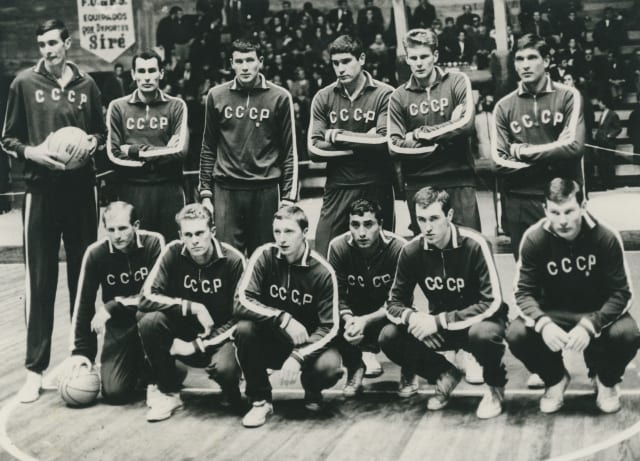
This was a significant year in international basketball because for the first time, a team from South or North America did not win the world title. Instead, a country from Europe - the Soviet Union - reached the top of the podium in Uruguay. The Soviets reigned supreme, with Lithuanian Modestas Paulauskas (bottom row, far right) the leading scorer. Ivo Daneu, the Slovenian that played for runners-up Yugoslavia, was named MVP in 1967.
4. The World Cup comes to the old continent in 1970

For the first time, the FIBA Basketball World Cup was played outside of the Americas, in Ljubljana, and the hosts Yugoslavia, who had finished runners-up at the previous two editions, won the title before their roaring fans.
5. Philippines makes history as first Asian country to host, in 1978

The event moved to Asia for the first time with the Philippines the hosts and adding to the sense of the occasion was a wonderful Opening Ceremony. The country's President at the time, Ferdinand Marcos, attended the first game, a 77-75 USA win over Australia . On the court, something else happened that raised eyebrows. Brazil poured in a World Cup record 154 points in a 57-point rout of China. Three traditional juggernauts held sway over the competition, with Yugoslavia winning the world title for the second time in their history and the USSR finishing second and Brazil third.
6. Dream Team II crash the 1994 World Cup party in Toronto

For the first time, NBA players like USA's Reggie Miller and Derrick Coleman (both above) competed at a FIBA Basketball World Cup. The Americans, nicknamed Dream Team II (The USA Dream Team had won gold at the Olympics two years before), rolled to the title with eight victories in as many games, including a 137-91 triumph over Russia in the Final before 32,616 spectators at the SkyDome in Toronto. Shaquille O'Neal of the USA was named MVP of the event.
7. An all-NBA USA team suffers first ever defeats in Indianapolis

A star-studded Yugoslavia team overcame struggles at 2002 event played in Indianapolis, Indiana, to win the title. Their run included an overtime triumph over Argentina in the Final. Yugoslavia were one of three teams to defeat the host nation, the USA, doing so in the Quarter-Finals. Argentina and Spain also pulled off the feat. It was the first tournament a USA team of NBA players lost a game.
8. USA fall in Greek drama while Spain reign in 2006
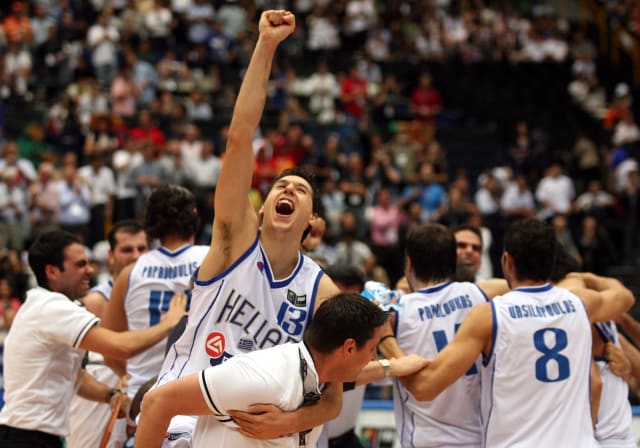
The FIBA Basketball World Cup expanded to 24 teams and Spain became the third European nation to capture the title with Pau Gasol named MVP. The event is perhaps best remembered for Greece's 101-95 upset of the United States team that had LeBron James, Dwyane Wade and Carmelo Anthony in the Semi-Finals.
9. USA defend title in spectacular fashion in 2014
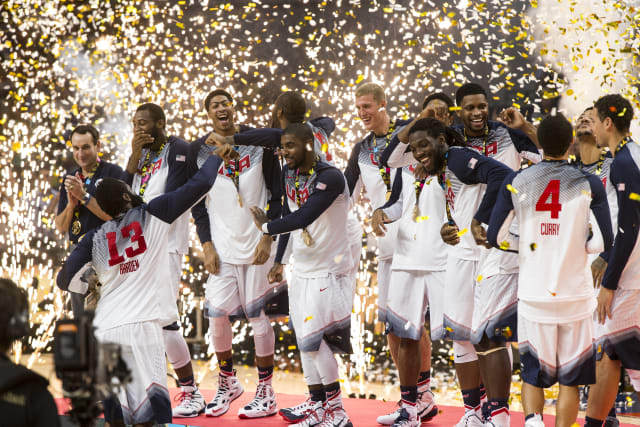
Known as the FIBA Basketball World Cup for the first time, there were incredible storylines, like the 10,000 fans that travelled from Finland to support the Susijengi, and France's stunning upset of hosts Spain in the Quarter-Finals. The biggest story of all was written by the USA as tournament MVP Kyrie Irving led the Americans to a second consecutive title.
10. Spain win again as China stages first 32-team World Cup

The FIBA Basketball World Cup, in its last edition, had a build-up like never before with Qualifiers played in Africa, the Americas, Asia and Europe over six windows. With unprecedented attention on the event, the World Cup showed how much had changed from the earliest tournaments with a media blitz, a glitzy draw ceremony and the competition itself. On the court, pre-tournament favorites USA and Serbia both fell in the Quarter-Finals and following their remarkable double overtime triumph over Australia in the Semi-Final, Spain defeated Argentina in the title game.
FIBA